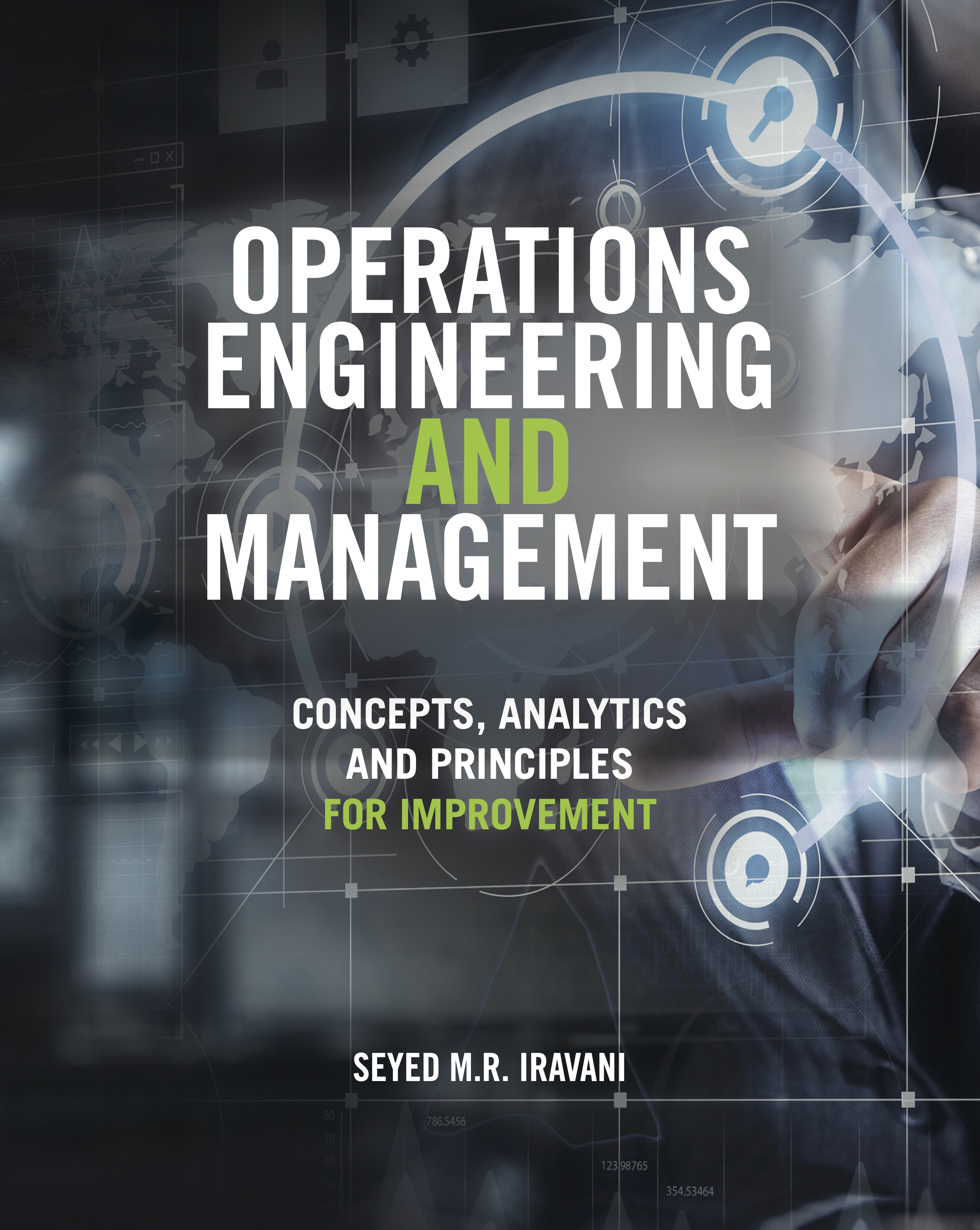Business Operations from Engineering and Management Perspectives
Seyed Iravani's new textbook presents concepts and principles of operations management with an emphasis on both analytics and intuition, which can work together
Operations management has always been challenging. Staff has to be managed, facilities must be maintained, production needs to remain efficient, and all facets need to work well together for a business to succeed. Successfully orchestrating these tasks is getting more tricky, due to global competition, advancing technology, and more discerning customers.
In his new textbook, Operations Engineering and Management: Concepts, Analytics and Principles for Improvement (McGraw Hill, 2020), Northwestern Engineering’s Seyed Iravani provides a balanced view of modern operations, from both management and engineering perspectives.

“I believe that managers with an engineering view of operations, and engineers with a management view of operations, would be more successful in management and control of manufacturing and service operations systems,” said Iravani, professor of industrial engineering and management sciences at the McCormick School of Engineering.
“Operations management decisions are considered the most difficult decisions because ad hoc choices that management usually makes based only on intuition are not going to work,” he added. “You can be a very experienced person in managing operations, but there are things where we need modeling to make solid choices.”
In this book, Iravani presents concepts and principles of operations management with an emphasis on both analytics and intuition, which can work together. Intuition draws on experience and past observations to make reasonable decisions and come up with workable solutions. On the other hand, a sharp knowledge of analytics can hone a decision-maker’s thinking and help them understand and correctly apply the numbers.
To illustrate that point, Iravani discussed a hypothetical consumer electronics store ordering 500 televisions after doing a mathematical evaluation of its needs. The analytics may say to purchase that many TVs, but it’s crucial to know why the formula dictated that number.
“The 500 came from a formula, but that’s not enough,” Iravani said. “You have to possess the intuition of how this formula works, and what insights it provides to the manager. I think that's why engineers need to know more about the management view of operations.”
Iravani said intuition helps one understand the underlying dynamics of operations systems from a big-picture perspective. In the electronics store example, the person in charge of ordering the TVs must have an intuition about how inventory holding cost and order transactions costs affect the number of TVs to purchase and hold in the store. They must also grasp the supplier’s lead time and how that will affect the amount of inventory on hand, and subsequently, profit. Formulas are abstract mathematical models of real systems, and do not always reflect reality. However, when they are used along with intuition, better operations decisions are made.
The focus of operations courses in management schools is on presenting students with a strategic view of operations and honing and understanding the necessary intuition to manage operations. Meanwhile, operations courses for engineering students tend to focus more on the use of analytics and mathematical modeling to support decision making. In his textbook, Iravani puts them together.
In the foreword of his book, Iravani cites a 2008 study from search consulting firm Spencer Stuart showing that the most common undergraduate degree among the CEOs polled was engineering, indicating that an engineering approach contributes to developing successful managers. This textbook, Iravani’s first after a prolific career publishing papers in academic journals, grew out of the material he developed for the courses he taught to both engineering and MBA students.
Iravani has consulted for a wide range of companies to improve their efficiency, including General Motors, Ford, Motorola, and General Electric, among others. His research focuses on the applications of stochastic processes, game theory, social networks, and queueing theory to the design and control of manufacturing, service operations systems, health care, supply chains, and non-profit systems focusing on improving their flexibility, coordination, and responsiveness.
